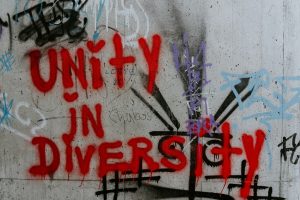[English] Critical Thinking and Composition
Description of the Resource:
This English Critical Thinking and Composition course provides a platform for students and instructors to investigate, analyze, discuss, and explore the world through a Hispanic lens. Emphasizing empathy and inclusion, the course focuses on the diversity of stories within the Latinx-American experience. The curriculum is divided into three units: critical thinking and logic, individual and group identity, and agency and action.
Throughout this course, students will engage in critical reading and responding. They will read, annotate, and respond to a variety of texts and recordings, with each unit focusing on a specific topic. For instance, in one assignment, students will write a call-to-action essay. This task involves creating context by arguing that certain stereotypes lead to harm for a specific marginalized group, convincing readers of their responsibility to become agents for change, and defining the actions needed to facilitate this change.
Through these activities, students will develop their critical thinking skills and create thoughtful responses, enhancing their research and analytical abilities while gaining a deeper understanding of Hispanic-American culture and history.
How This Resource Integrates Diversity, Equity, and Inclusion Principles and Practices:
This course integrates diversity, equity, and inclusion principles by focusing on diverse perspectives and promoting empathy. Through exploring the Latinx-American experience, students engage with narratives that highlight cultural complexity and challenge stereotypes. The curriculum encourages critical thinking and analytical skills, which enables students to deconstruct harmful narratives and question societal norms.
The course also focuses on the formation and expression of individual and group identities, which can help promote respect for those from diverse backgrounds. Students are empowered to become agents of change through assignments that advocate for marginalized groups and outline actionable steps for social justice. Critical reading and responding exercises further enhance students’ ability to engage thoughtfully with various perspectives, fostering an inclusive and equitable approach to understanding the world. Through these practices, students are equipped with the skills and mindset to promote diversity, equity, and inclusion in their own lives and communities.
Photo by Claudio Schwarz on Unsplash

